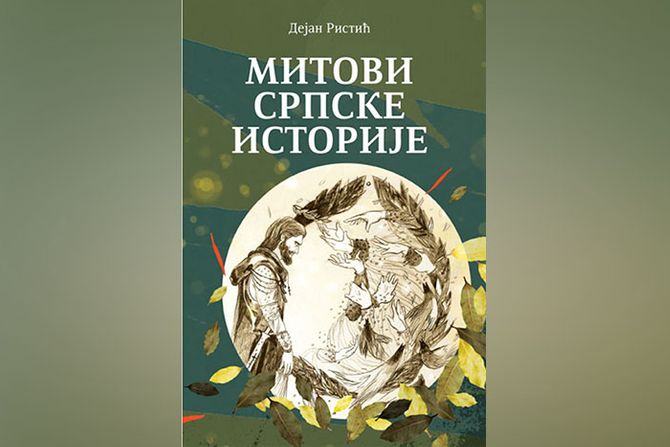
Dejan Ristic's new book reveals truth about 20 most famous historical myths that Serbs believe
Were Notre Dame bells ringing to mark the victory of the Serbs in Kosovo, who was Marko Kraljevic: a hero or a Turkish vassal, was Helen of Anjou really an Anjou, why is there no five-pointed star on the tomb of Josip Broz Tito... these are some of the myths analyzed by historian Dejan Ristic in his new book, "The Myths of Serbian History," published by Vukotic Media, which is now available in bookstores across Serbia.
The book covers 20 of the most famous myths and offers analyses of the historical veracity of each of them.
Ristic hopes that the book will provoke dialogue on some important historical topics, not so much among historians who are acquainted with the contents of the book thanks to their education, but among history buffs who are interested in enriching and making their knowledge more objective, primarily that concerning national, and then European history.
"The book is a reaction to the fact that we live in a time when knowledge has been rendered completely meaningless. Our citizens are exposed to a large number of individuals who are incompetent to pursue scientific historiography because they have not studied history, nor do they possess adequate knowledge and skills. These individuals are engaged in pseudoscience, so it happens that we as a society base some important stances on historical fasehoods or at best on half-truths," said Ristic.
He added that his book is a repeated attempt by a historian to, following the example of his great predecessors from the 19th and 20th century, offer an opportunity to find in one place our most famous 20 myths, which most of our fellow citizens are convinced contain indisputable historical facts.
According to him, myths are characteristic of the period of antiquity and the Middle Ages in European, and therefore our own culture - but it is not typical for a society and a nation to be falling victim to a mythomania epidemic at the beginning of the 21st century.
(Telegraf.rs/Tanjug)
Video: Sneg prekrio Staru Planinu: Nestvaran prizor
Telegraf.rs zadržava sva prava nad sadržajem. Za preuzimanje sadržaja pogledajte uputstva na stranici Uslovi korišćenja.

